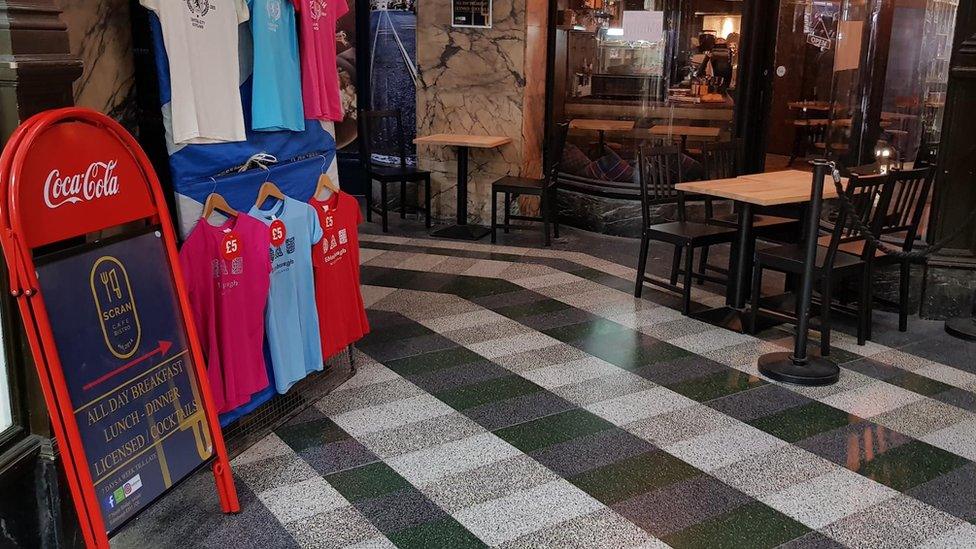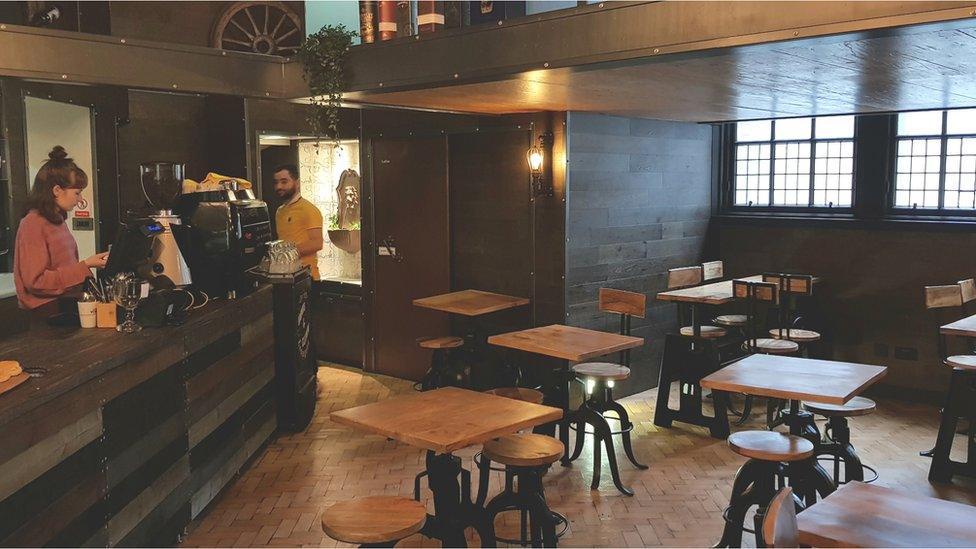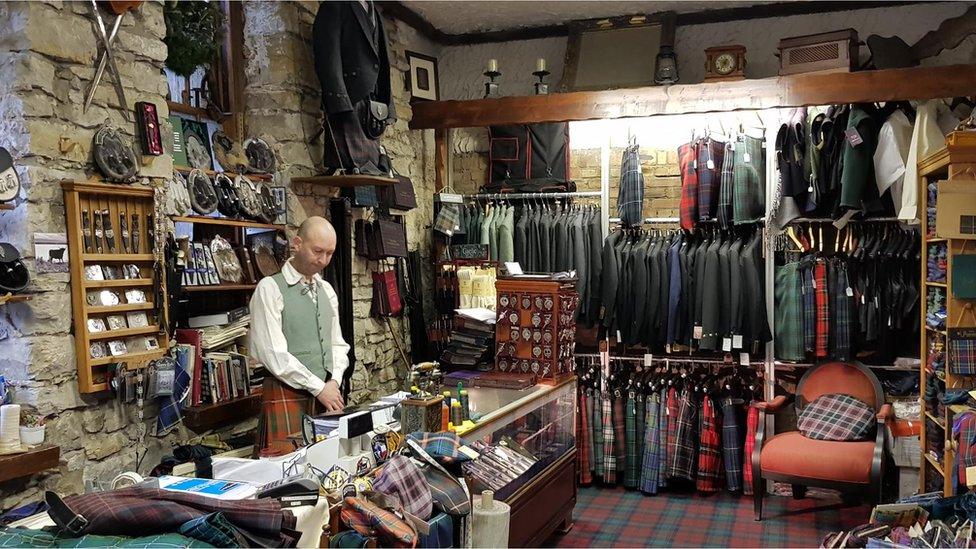Criticism of on-street advertising ban in Edinburgh
- Published

Bistro Scran has been forced to move its advertising board inside the arcade, away from public view
A ban on advertising boards in Edinburgh's streets will unfairly disadvantage businesses off the main thoroughfare, their owners claim.
Some have told the BBC Scotland website that they fear their shops and cafes will suffer as a result of the move.
The new rule came into force across the city on Monday.
The City of Edinburgh Council said it wanted to reduce "all kinds of street clutter" to create "a safer, more accessible streetscape".
Suleyman Sarher, co-owner of Scran, a bistro tucked away in an arcade in Edinburgh's Old town, worries about the potential impact of the ban on his young business.
"Yesterday we sold 22 breakfasts, today we sold two", he told the BBC Scotland website.
He is already concerned about how his new business can attract customers from the street.
"Being in the arcade, we can't get to them. The only way we can do it is the boards or other signage", he added.

Scran's co-owner believes business is already suffering without on-street advertising
"We pay a lot of council tax. You can't pay £12,000 in council tax and not do any business."
Mr Sarher believes businesses like Scran benefit hugely from the on-street advertising, but those on the streets do not need it.
He said: "We understand it's to make the street accessible - but from a business perspective there has to be a balance.
"The council needs to find a balance between clearing the pavements and not killing businesses like ours.
"There's table and chairs on the street outside - they take up half of the pavement. Businesses pay the council for that, but when they give half of the pavements away for money they should give a small A-board to off-street businesses.
"It's not easy to survive in a town centre not having foot-fall. We're paying rates for a town centre, but we're not benefiting from being in the town centre.
'A mockery'
William James, who has owned a kilt-making shop, just off The Royal Mile, for 40 years, described the rules as a "victimisation".
He said, "It's a mockery, it's supposed to be for access on the street and yet other shops can still cover the street. The cafe tables and chairs, menu boards and barrels can all stay. It's victimisation totally.

Celtic Craft Centre is expecting difficulties attracting customers, 40 years after opening
"They say nothing in life is black and white - I say this is, you leave the A-boards for businesses who need them, and you take them away from businesses that have windows and doors on the street front.
"Streets are covered in menu boards, post card racks, racks of clothing, racks of all kinds - but they take away the sign for businesses that are totally hidden.
"If I didn't have tables and chairs and racks filled with stuff in front of me, even without signage I would be more visible.
"Originally we had a girl sitting hand spinning at the top of the close; inside we had a bagpipe maker and a silversmith, people could see all these things being made. The council forced the spinner to go away from the street, so all this stopped - it wasn't possible anymore. Now the signage is gone."
'Reduce street clutter'
Lesley Macinnes, City of Edinburgh Council's environment convener said: "We understand the importance of a thriving local economy and have worked with a range of stakeholders, including traders' associations and Business Improvement Districts, throughout this process to provide advice and guidance on alternative forms of advertising.
"Ultimately this is about creating a safer, more accessible streetscape for pedestrians of all abilities and by introducing a citywide ban we want to level the playing field, ensuring streets across Edinburgh are free of obstructions.
"While this ban only covers temporary on-street advertising we do fully intend to reduce all kinds of street clutter in the long term.
"Now the ban is in place our environmental wardens will be visiting businesses to raise awareness of the change and to ensure compliance. Following the initial bedding-in period more formal enforcement will be carried out with those that refuse to comply."